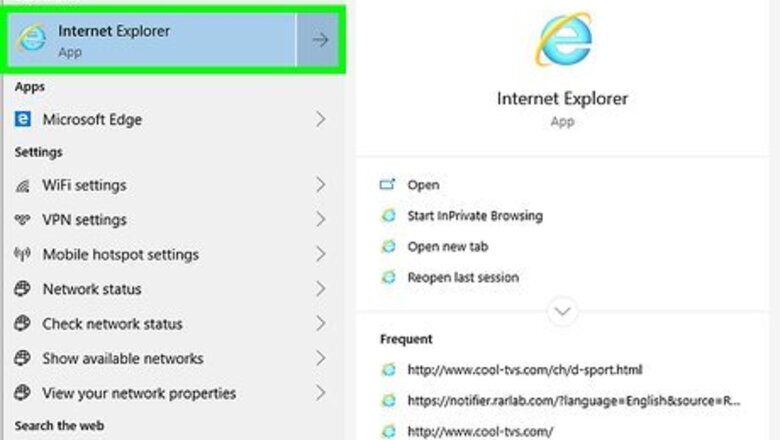
views
X
Research source
Still, Internet Explorer comes pre-installed on all versions of Windows prior to Windows 11, and remains available for compatibility purposes. Also, Edge is not available for earlier versions of Windows.
Using Windows 10
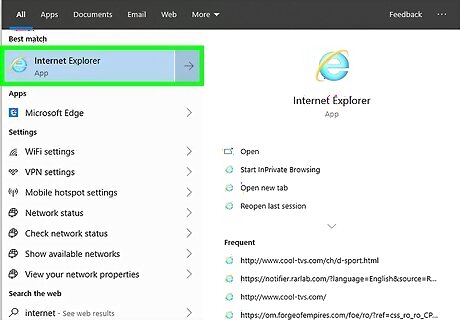
Check to see if you already have Internet Explorer. Internet Explorer 11 comes free with Windows 10 and is always updated automatically. You shouldn't need to install it unless you've removed it from the PC. Here's how to find out if you already have the app: Click the Windows Search bar (or press ⊞ Win+S). Type internet explorer. Click Internet Explorer if it appears. If you only see Microsoft Edge but want to use Internet Explorer, continue with this method.
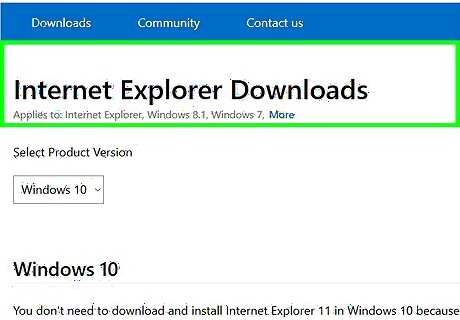
Go to Microsoft's Internet Explorer page. You can use any browser on your computer to do this, including Microsoft Edge and Google Chrome.
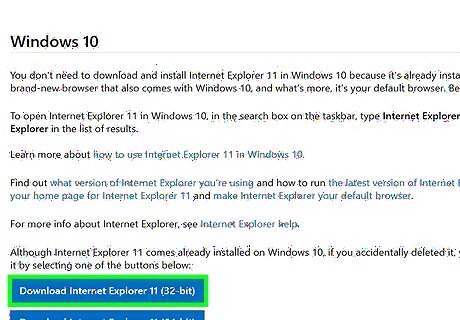
Scroll down and click Download Internet Explorer 11 (32/64-bit). Click the version you need for your operating system (32-bit or 64-bit) to save it to your computer. You may have to click Save if the download doesn't start automatically. If you're not sure which version you need, follow these steps: Right-click the Start Windows Start menu. Click System. Find either "64-bit" or "32-bit" next to "System type." It's in the right panel under the "Device specifications" header.
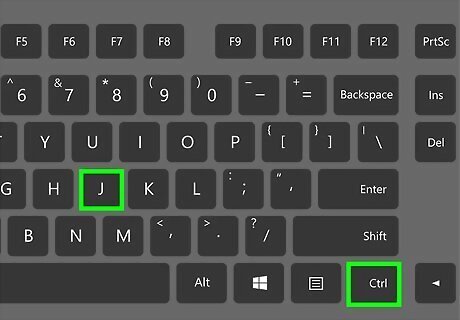
Press Ctrl+J in your web browser. This opens a list of your recent downloads.

Click the file that begins with EIE11_EN. This is the Internet Explorer installer file, and it should be at the top of the list. A security message will appear.
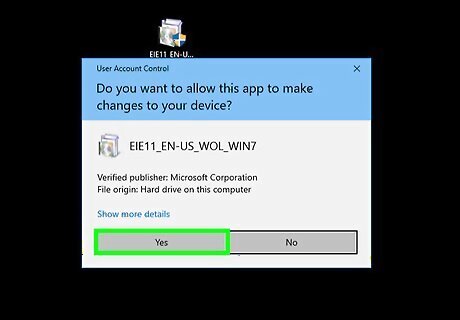
Click Yes to confirm. Another confirmation will appear.
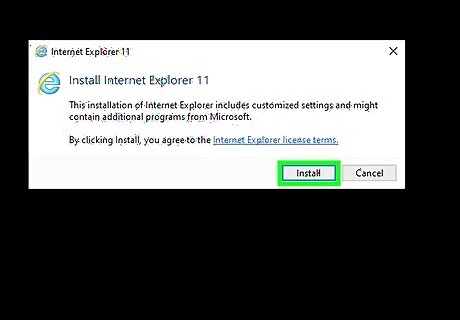
Click Install. Internet Explorer will now install on your computer. Once the installation is complete, you'll be prompted to restart your computer.
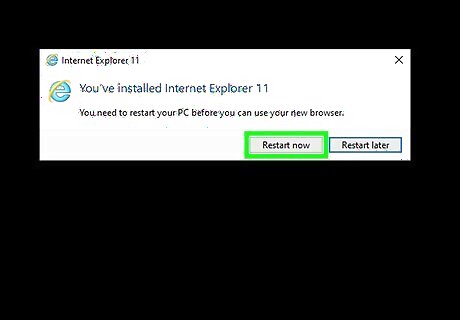
Click Restart now. Be sure to save any open files first. Once your computer restarts, Internet Explorer will be ready to use. You can launch Internet Explorer by clicking it in the Start Windows Start menu.
Using Windows 8 and 8.1
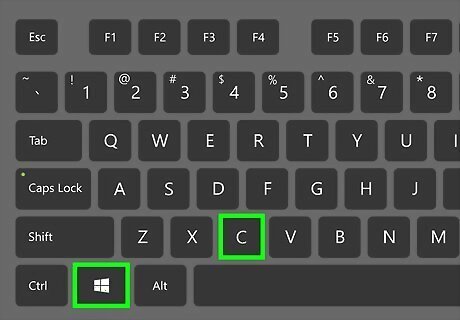
Press ⊞ Win+C to open the Charms menu. If you're using Windows 8 or 8.1, Internet Explorer is already installed. Since there's no separate download available, this method will teach you how to open Internet Explorer on your PC. The Windows key is in the bottom row of the keyboard to the left of Alt.
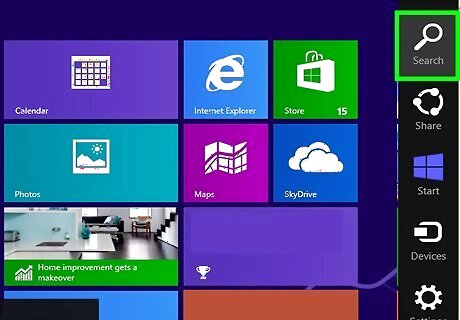
Click Search. It's at the top of the Charms menu.
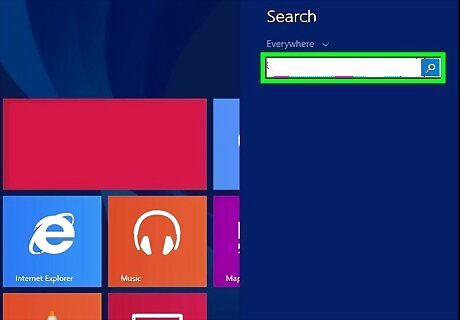
Type internet explorer. As you type, a list of matching search results will appear.
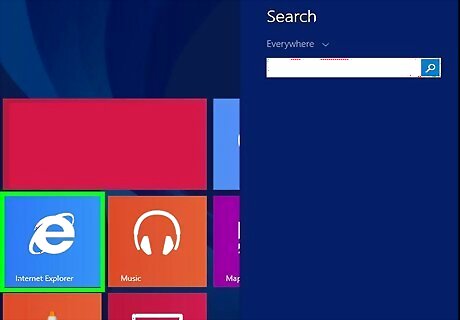
Click Internet Explorer in the search results. This launches Internet Explorer on your computer.
Using Windows 7
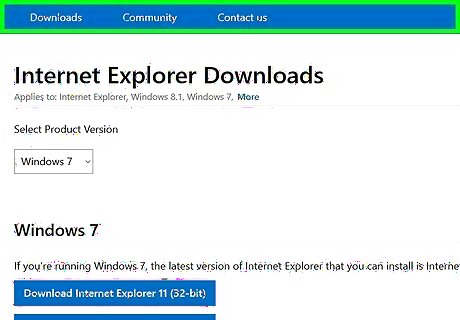
Go to Microsoft's Internet Explorer page. You can use any browser on your computer to do this, including Microsoft Edge and Google Chrome. If you have an earlier version of Internet Explorer installed, this method will install the latest update.
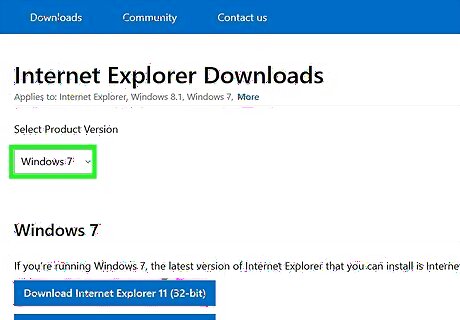
Select Windows 7 from the "Select Product Version" menu. It's near the top of the page.
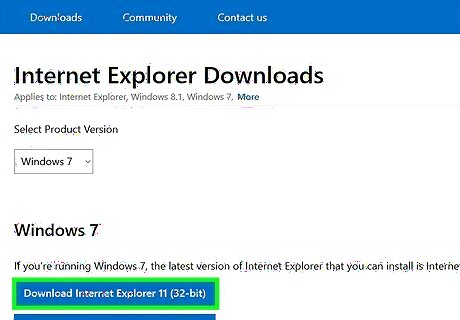
Scroll down and click Download Internet Explorer 11 (32/64-bit). Click the version you need for your operating system (32-bit or 64-bit) to save it to your computer. You may have to click Save if the download doesn't start automatically. If you're not sure which version you need, follow these steps: Click the Start menu. Type system in the "Start Search" box. Click system in the search results. Find either "64-bit Operating System" or "32-bit Operating System" next to "System type."
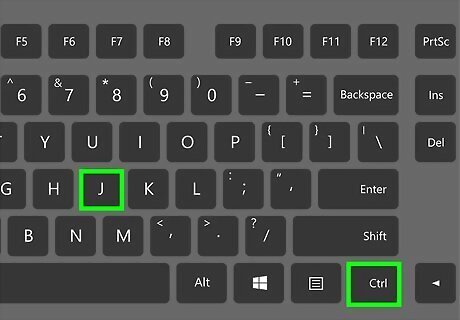
Press Ctrl+J in your web browser. This opens a list of your recent downloads.

Click the file that begins with EIE11_EN. This is the Internet Explorer installer file, and it should be at the top of the list.
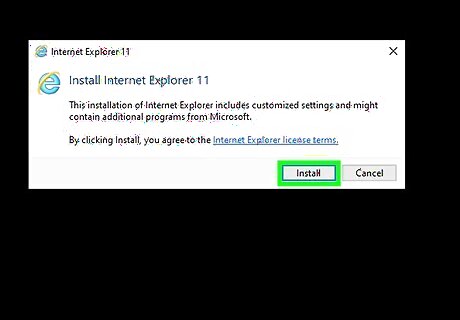
Follow the on-screen instructions to install. Once the installation is complete, you'll be prompted to reboot your PC.
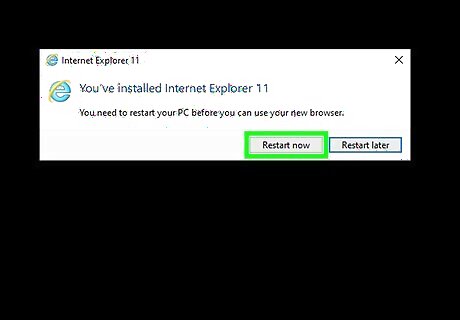
Click Restart now to reboot. Be sure to save any open files first. Once your computer restarts, Internet Explorer will be ready to use. You can launch Internet Explorer by clicking it in the Start menu.



















Comments
0 comment